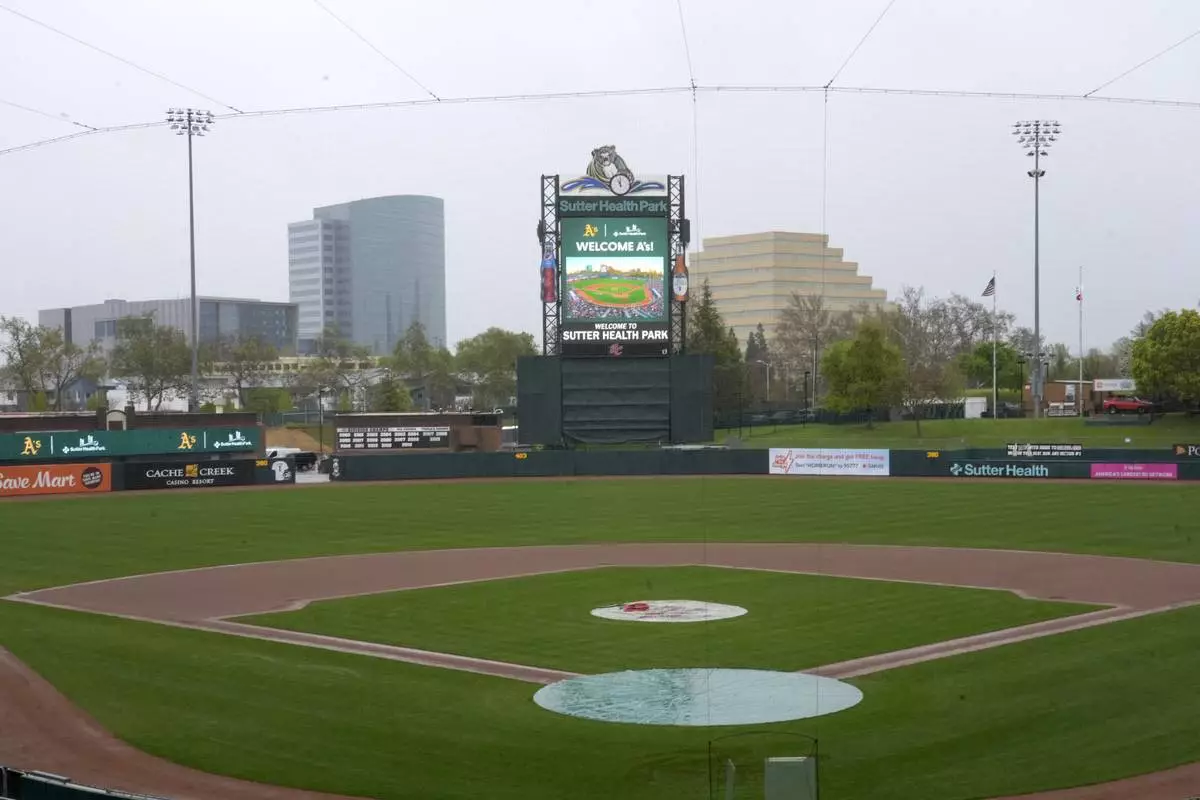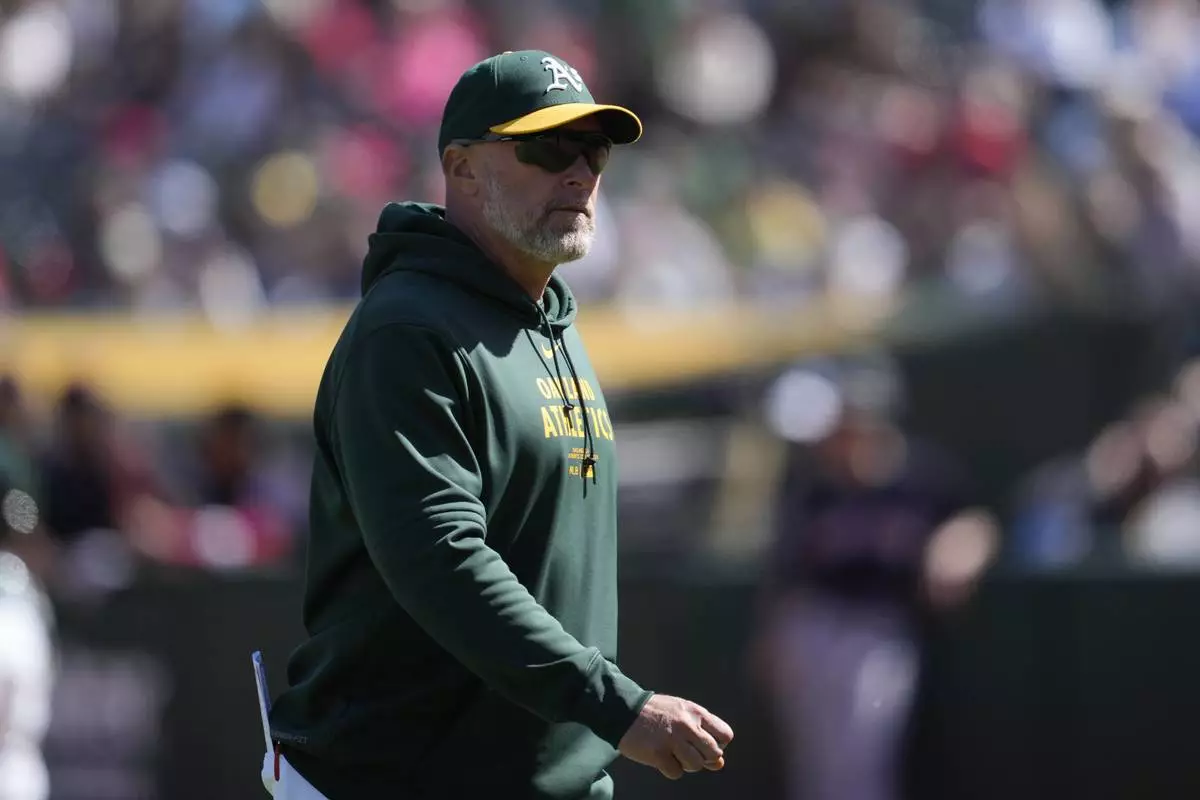Only a week after attacks on two mosques in New Zealand killed 50 worshippers, the country has banned sales of "military-style" semi-automatic weapons and high-capacity magazines.
In the world of politics, it's a lightning fast response, especially when compared to the deeply contentious, long-running gun control debate in the United States.
The suddenness of Thursday's ban, which came as the dead were being buried, has raised many questions, especially for those not familiar with firearms.
Here's a closer look:
WHAT'S BEING BANNED?
Prime Minister Jacinda Ardern said that "every semi-automatic weapon used in the terrorist attack last Friday will be banned." She said that includes "military-style" semi-automatic firearms and high-capacity magazines.
Ardern said a sales ban was effective immediately to prevent stockpiling and would be followed by a complete ban on the weapons after new laws are rushed through.
The ban includes any semi-automatic guns or shotguns that are capable of being used with a detachable magazine that holds more than five rounds. It also extends to accessories used to convert guns into what the government called "military-style" weapons.
Many different types of firearms, from pistols to rifles and shotguns, can be semi-automatic. Semi-automatic refers to a firearm's ability to self-load, not only firing a bullet with each trigger pull, but also reloading and making the firearm capable of firing again.
WHAT'S NOT BEING BANNED?
The ban does not include semi-automatic .22 caliber or smaller guns that hold up to 10 rounds or semi-automatic and pump-action shotguns with non-detachable magazines that hold up to five rounds. The guns not banned are commonly used by farmers and hunters.
Caliber is the measurement of the diameter of the inside of a gun barrel. A higher caliber firearm uses larger rounds that can do more tissue damage and are more lethal.
The government said the police and military would be exempt, as would businesses carrying out professional pest control. Access for international shooting competitions would also be considered.
WHAT HAPPENS TO BANNED GUNS?
Ardern said people could hand over their guns under an amnesty while officials develop a formal buyback scheme, which could cost up to 200 million New Zealand dollars ($140 million).
New Zealand police said on their website that the "transitional period" would allow people to arrange to hand over their unlawful firearms to police without penalties. It encouraged people to fill out an online form and said after that police would be in touch to make arrangements.
There could be legal exemptions to the ban, such as for pest controllers, but Ardern said any exemptions would be "tightly regulated."
"For other dealers, sales should essentially now cease. My expectation is that these weapons will now be returned to your suppliers and never enter into the New Zealand market again," she said.
HOW MANY GUNS ARE AFFECTED?
There are nearly 250,000 licensed gun owners in New Zealand, which has a population of 5 million people. Officials estimate there are 1.5 million guns in the country.
Sydney University gun policy expert Philip Alpers estimated that only 6 percent of all weapons in New Zealand were registered.
He said there could be 500,000 semi-automatic rifles and shotguns. But, he added, "only a small proportion of those would be capable of taking a large-capacity magazine. So that's the number that everyone is trying to guess."
DO NEW ZEALANDERS SUPPORT IT?
The ban is widely supported and puts New Zealand "almost exactly in line" with Australia, the United Kingdom and "somewhat with Canada," according to Professor Kevin Clements, chairman of Peace and Conflicts studies at the University of Otago and a firearms expert.
One of New Zealand's largest gun retailers, Hunting & Fishing New Zealand, said it supports "any government measure to permanently ban such weapons."
The company said it would no longer stock any assault-style firearms of any category and would also stop selling firearms online.
"What (Ardern's) done is a very brave move, and it's the kind of move that can only be done in a common-law country where guns are not a right. Guns are a real privilege. If there was a legal right like there is in the United States, this would be much more difficult," said International law Professor Alexander Gillespie of Waikato University.
But, he added, "it's going to be expensive, and there's going to be a lot of pushback."
WHAT'S NEXT?
Alpers noted that New Zealand, although it requires handgun registration, "is still the only country apart from the United States and to some degree Canada that doesn't have (firearm) registration as its third pillar of gun control" along with licensing and treating possession as a conditional privilege.
Alpers said rifles and shotguns aren't registered in the country.
He called that "a very important loophole" but said Ardern "has flagged her determination to pursue registration. Whether she'll be able to do it completely or not ... is another question."
DETROIT (AP) — The Oakland Athletics no longer have to wonder where they'll play the next few seasons. That won't make the long goodbye any easier.
The A's reacted to the announcement that this will be their last year in Oakland with a mixture of sadness and relief.
“At least as a player, you know where you’re headed,” outfielder Seth Brown said Friday before a game against the Tigers in Detroit. “There’s obviously a lot of moving parts, a lot of stuff we’re not privy to, so it’s just been kind of a waiting game on our end. Where are we going to go? Where are we going to be? So I think just having that knowledge -- at least we know where we’re going to be playing next year.”
Vivek Ranadivé, who owns the Triple-A Sacramento River Cats, and Oakland Athletics owner John Fisher announced Thursday that the A’s will temporarily relocate to West Sacramento's Sutter Health Park for at least three seasons. The A's are moving to Las Vegas after a new ballpark is constructed.
The River Cats, who are affiliated with the San Francisco Giants, will continue to play at the same facility.
Fisher was unable to reach an agreement with Oakland city officials on extending the lease at Oakland Coliseum, which expires at the end of this season. The A's have played in the city since 1968.
“There's direction now, which we've talked a lot about,” Oakland A's manager Mark Kotsay said. “We've got time to kind of reflect on what this really means from an organizational standpoint, the history that we've had in Oakland, with this being now the final season. There's a lot of emotion that goes behind this.”
It will not only cause some upheaval for the players and staff but also members of the organization that work behind the scenes.
“At the end of the day, we know where we're going to be for the next three seasons after the finish this year and that in itself gives a little bit of stability,” Kotsay said. “At the same time, in the present, it's challenging in certain ways to think about the finality of this organization in Oakland.”
Sacramento will be a much smaller environment to house a major league team. Ranadivé said the River Cats venue currently seats 16,000 when counting the stands, the lawn behind center field and standing room only.
First baseman Ryan Noda is concerned with the facilities. He's hopeful that significant upgrades will be made, much like the Toronto Blue Jays did at Buffalo's Triple-A facility. The Blue Jays played at Buffalo's Sahlen Field in 2020 in 2021 during the COVID-19 pandemic.
“New walls, new dugouts, new locker rooms — everything they needed to become a big league stadium,” said Noda, who played some games in Sacramento as a minor leaguer. “As long as we can do something like that, then it'll be all right. But it's definitely going to be different than playing in stadiums that hold 40,000 people.”
Kotsay is confident the upgrades will occur.
“I know it will be of major league baseball quality,” he said. “It's has to be of major league baseball quality. I know the Players Association will make sure that takes place, as they did in Buffalo.”
For the rest of this season, the A's will have to deal with small home crowds and disappointed fans.
“We’re sad for the fans, the diehard fans, who always come to our games, always support us, always support the boys wearing the jersey,” Noda said.
AP MLB: https://apnews.com/hub/mlb

Sacramento Kings owner Vivek Ranadive, center, shakes hands John Fisher, owner of the Oakland Athletics, before the start of a news conference where Fisher announced his team will leave Oakland after this season and play temporarily at a minor league park, during a news conference in West Sacramento, Calif., Thursday, April 4 2024.The A's announced the decision to play at the home of the Sacramento River Cats from 2025-27 with an option for 2028 on Thursday after being unable to reach an agreement to extend their lease in Oakland during that time. (AP Photo/Rich Pedroncelli)

John Fisher, owner of the Oakland Athletics baseball team, announces that his team will leave Oakland after this season and play temporarily at a minor league park, during a news conference in West Sacramento, Calif., Thursday, April 4, 2024. The A's announced the decision to play at the home of the Sacramento River Cats from 2025-27 with an option for 2028 on Thursday after being unable to reach an agreement to extend their lease in Oakland during that time. (AP Photo/Rich Pedroncelli)

Sutter Health Park, home of the Triple A team Sacramento River Cats, is shown in West Sacramento, Calif., Thursday, April 4, 2024. The Oakland Athletics announced the decision to play at the home of the Sacramento River Cats from 2025-27 with an option for 2028 on Thursday after being unable to reach an agreement to extend their lease in Oakland during that time. (AP Photo/Rich Pedroncelli)

Oakland Athletics manager Mark Kotsay walks to the dugout after making a pitching change during the eighth inning of the team's baseball game against the Cleveland Guardians in Oakland, Calif., Sunday, March 31, 2024. (AP Photo/Jeff Chiu)






